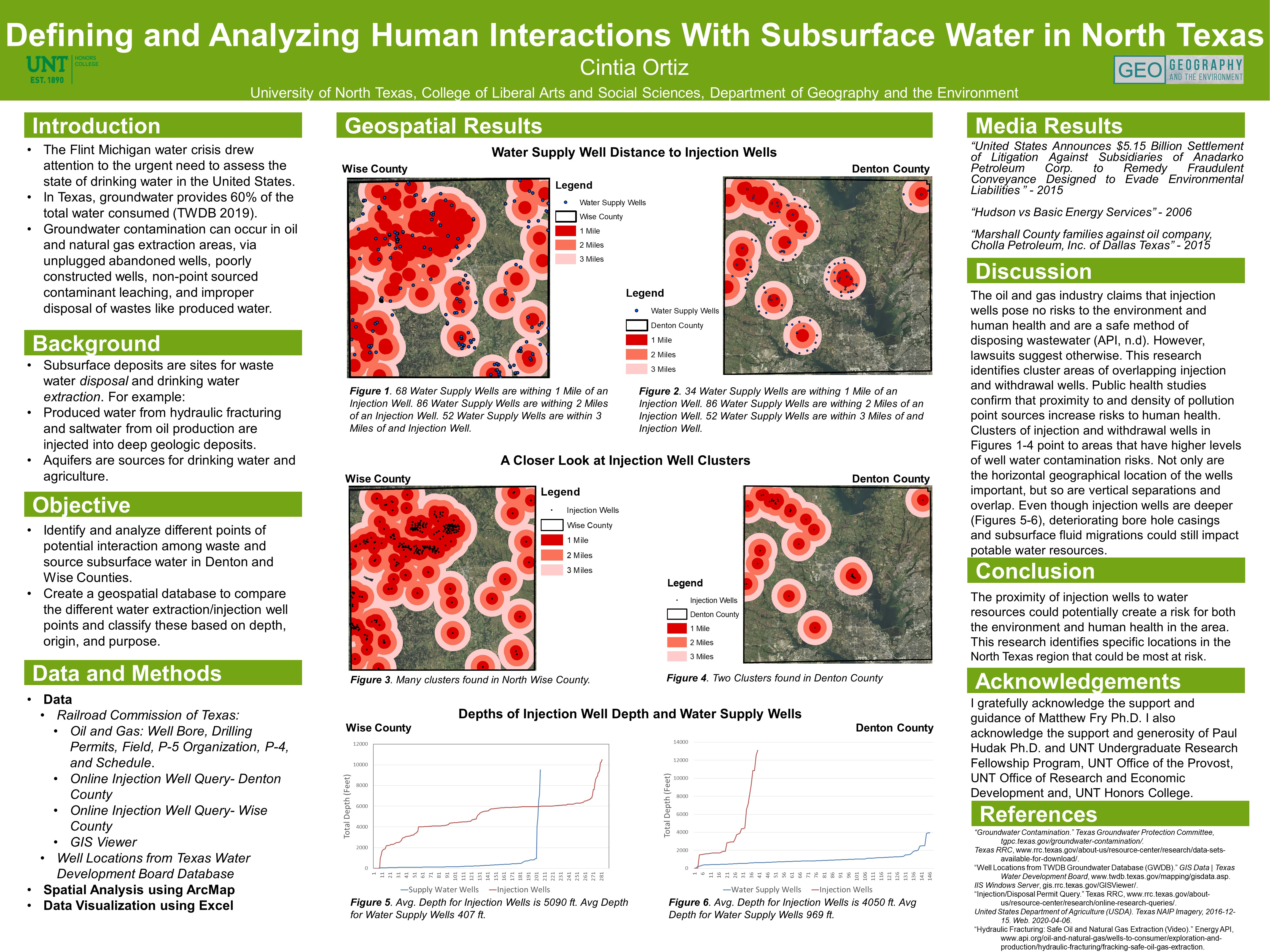First Name:
CintiaLast Name:
OrtizMentor:
Dr. Matthew FryAbstract:
The Flint Michigan water crisis drew attention to the urgent need to assess the state of drinking water in the United States. In Texas, groundwater provides 60% of the total water consumed (TWDB 2019). Issues with groundwater relate to water quality and quantity. Groundwater contamination occurs by unplugged abandoned oil and natural gas wells, poorly constructed and placed oil and natural gas wells, non-point sourced contaminants and improper disposal of wastes. According to the Texas Groundwater Protection Committee, groundwater contamination reports most often reference petroleum storage tanks near heavily populated cities (TGPC 2019). Although Groundwater Conservation Districts ostensibly manage and protect local water supplies, the over drafting of aquifers and growing groundwater contamination could cause scarcities in clean water and lead to rising water prices. My research aims to examine subsurface water in North Texas. Currently, groundwater, water tables, and aquifers are common ways to understand subsurface water. However, produced water from hydraulic fracturing and saltwater from oil production also are injected into deep geologic deposits. In this way, some subsurface waters are accessed and extracted for drinking water and agriculture, for example, while other subsurface waters arise from surface water injections. The goal of my research is to identify and analyze different points of interaction with the multiple forms of subsurface water in Denton and Wise Counties. To do so, I will create a geospatial database that allows me to compare the different water extraction/injection well points and classify these based on depth, origin, and purpose.Poster:





